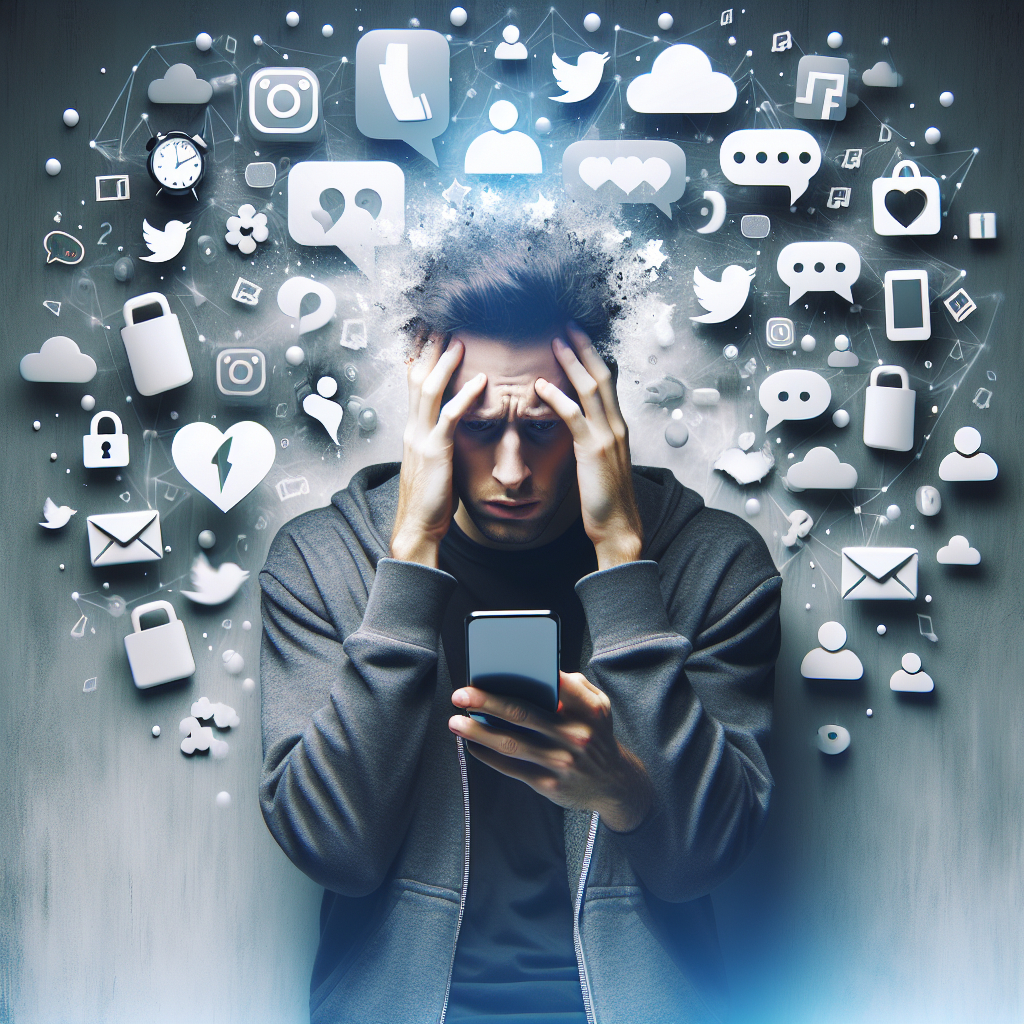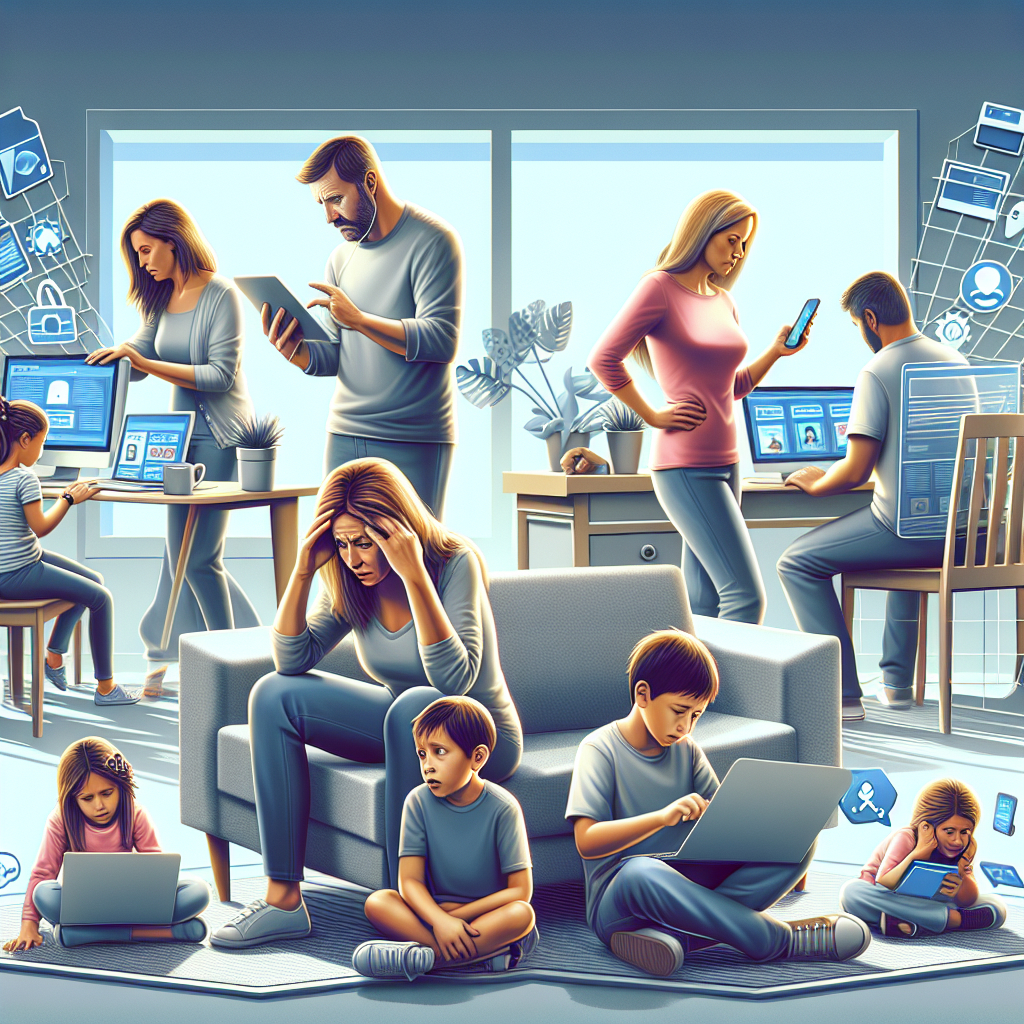Social media has become an integral part of our daily lives, influencing various aspects of our existence, including our mental health. This article delves into the multifaceted impact of social media on mental well-being, exploring both the positive and negative effects.
The Positive Effects of Social Media on Mental Health
While social media often receives criticism for its potential negative impact on mental health, it is essential to acknowledge the positive aspects it brings to the table. One of the most significant benefits is the ability to connect with others. Social media platforms like Facebook, Instagram, and Twitter allow individuals to maintain relationships with friends and family, regardless of geographical barriers. This connectivity can be particularly beneficial for those who may feel isolated or lonely, providing a sense of community and support.
Moreover, social media can serve as a valuable resource for mental health information and support. Numerous organizations and individuals use these platforms to share information about mental health issues, coping strategies, and available resources. This can help raise awareness and reduce the stigma associated with mental health conditions. Additionally, online support groups and communities can offer a safe space for individuals to share their experiences and seek advice from others who may be going through similar challenges.
Another positive aspect of social media is its potential to inspire and motivate. Many users follow accounts that promote positive thinking, self-improvement, and mental well-being. These accounts often share uplifting content, such as motivational quotes, success stories, and tips for maintaining a healthy mindset. By consuming this type of content, individuals can feel more encouraged and empowered to take control of their mental health.
The Negative Effects of Social Media on Mental Health
Despite the positive aspects, social media can also have detrimental effects on mental health. One of the most significant concerns is the impact of social comparison. Social media platforms often showcase the highlights of people’s lives, leading users to compare themselves to others. This can result in feelings of inadequacy, low self-esteem, and even depression. The constant exposure to curated and idealized images can create unrealistic expectations and pressure to conform to certain standards.
Another negative effect of social media is the potential for cyberbullying. The anonymity and reach of social media can make it easier for individuals to engage in harmful behaviors, such as spreading rumors, making hurtful comments, or sharing private information without consent. Victims of cyberbullying may experience increased anxiety, depression, and in severe cases, suicidal thoughts. The pervasive nature of social media means that these negative interactions can follow individuals into their personal lives, making it difficult to escape the harmful effects.
Additionally, excessive use of social media can contribute to poor mental health. Spending too much time on these platforms can lead to a sedentary lifestyle, disrupted sleep patterns, and decreased face-to-face interactions. These factors can negatively impact overall well-being and contribute to feelings of loneliness and isolation. Furthermore, the constant influx of information and notifications can lead to information overload and increased stress levels.
Strategies for Managing Social Media Use
Given the potential negative effects of social media on mental health, it is crucial to develop strategies for managing its use. One effective approach is to set boundaries and limit the amount of time spent on social media. This can be achieved by scheduling specific times for checking social media, using apps that track and limit usage, or taking regular breaks from these platforms. By reducing the time spent on social media, individuals can focus on other activities that promote mental well-being, such as exercise, hobbies, and face-to-face interactions.
Another strategy is to curate a positive and supportive social media environment. This can involve unfollowing or muting accounts that promote negative content or trigger feelings of inadequacy. Instead, individuals can choose to follow accounts that inspire, educate, and uplift. Engaging with positive content and supportive communities can help create a more balanced and healthy social media experience.
It is also essential to practice mindfulness and self-awareness when using social media. Being mindful of how social media use affects one’s emotions and mental state can help individuals recognize when it is time to take a break or seek support. Additionally, practicing self-compassion and reminding oneself that social media often presents a curated version of reality can help mitigate the negative effects of social comparison.
Conclusion
In conclusion, social media has a profound impact on mental health, with both positive and negative effects. While it offers opportunities for connection, support, and inspiration, it also poses risks related to social comparison, cyberbullying, and excessive use. By developing strategies for managing social media use and curating a positive online environment, individuals can harness the benefits of social media while minimizing its potential harm. Ultimately, it is essential to strike a balance and use social media in a way that supports and enhances mental well-being.



